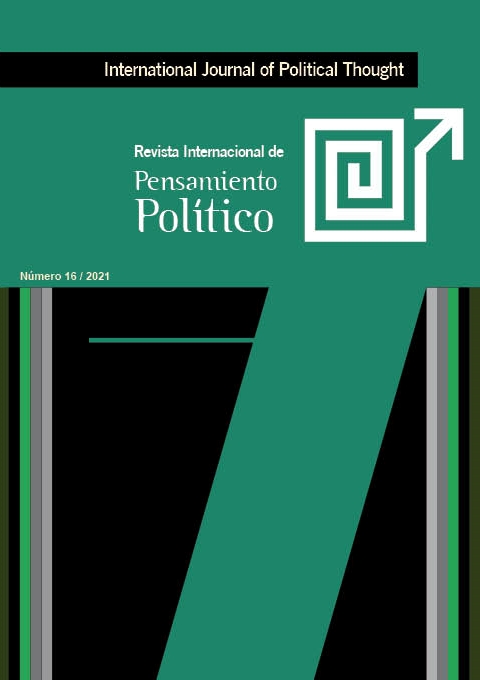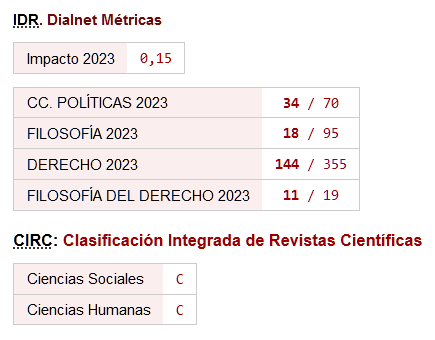Le voci delle intersezioni: Postcolonialismo e femminismo
Quando la subalterna può parlare
DOI:
https://doi.org/10.46661/revintpensampolit.6280Palabras clave:
Postcolonialismo, Femminismo, Studi di Genere, Femminismo neroResumen
All’inizio degli anni ’80 nell’Università di Delhi, un gruppo di studiosi si riunisce per riflettere sulle relazioni tra Occidente ed Oriente. Il collettivo nato dallo storico Ranajit Guha, prende il nome di Subaltern Studies, richiamando le teorie gramsciane sulla subalternità. L’analisi dei rapporti di dominio e soggezione tra coloni e colonizzati è centrale nello sviluppo di queste nuove teorie postcoloniali. I protagonisti di questo fervente dibattito non circoscrivono il postcolonialismo dentro precisi confini geografici: la condizione postcoloniale è principalmente ideologica, poiché nasce come prodotto delle relazioni e dei processi storici di colonizzazione. All’interno dei Subaltern Studies, la studiosa Gayatry Chakravorty Spivak (1985) si interroga sull’assenza del soggetto femminile nel discorso dei suoi colleghi, ponendo una domanda fondamentale per la teoria postcoloniale e per la teoria femminista: “La subalterna può parlare?” (1988). La donna appare un soggetto ventriloquizzato e costantemente rappresentato e definito dallo sguardo dell’altro. Spivak centra l’attenzione sul bisogno di autodeterminazione del soggetto femminile. Alla voce della filosofa indiana fanno eco le femministe chicanas e afroamericane, che dagli Stati Uniti reclamano un femminismo che tenga conto di tutte le subalternità che agiscono sul corpo femminile, prima fra tutte la razza. La declinazione dell’intersezione tra sesso, razza e classe assume un ruolo fondamentale sia nella teoria postcoloniale che in quella femminista. Nel presente lavoro si analizzano le principali rivendicazioni e le strategie di resistenza usate dalle voci delle subalterne, che marcano alcuni momenti di incontro/confronto tra femminismo e postcolonialismo.
Descargas
Citas
Adorno, R. (1988). "El sujeto colonial y la construcción cultural de la alteridad". Revista de Crítica literaria Latinoamericana. Año XIV, n. 28, 2do semestre, pp. 55-68.
Albertazzi, S. (2017). La letteratura postcoloniale. Dall'Impero alla World Literature. Roma: Carocci.
Anderson, B. (1996). Comunità immaginate. Origini e fortuna dei nazionalismi. Roma: Manifestolibri.
Anzaldúa, G. (1999). Borderland/La Frontera: The New Mestiza, San Francisco, Lute Books.
Anzaldúa, G. (ed.) Making Face, Making Soul, Haciendo caras. Creative and Critical Perspectives by Feminists of Color. San Francisco: Aunt Lutte Books.
Bhabha, H. (1994). The Location of Culture, Londra/New York, Routledge. Trad. it. (2006). I luoghi della cultura, Roma, Carocci.
Bhavnani, K.K., Coulson M. (2004). "Transformar el feminismo socialista. El reto del racismo". Otras inapropiables. Feminismos desde las fronteras. Madrid: Traficantes de sueños.
Bidaseca, K. (2012). "Voces y luchas contemporáneas del feminismo negro. Corpolíticas de la violencia sexual racializada". Afrodescendencia. Aproximaciones contemporáneas de América latina y el Caribe. México: ONU, pp. 40-50.
Braidotti, R. (1995). Soggetto nomade. Femminismo e crisi della modernità. Firenze: Donzelli.
Chakrabarty, D. (2004). Provincializzare l'Europa. Roma: Meltemi.
Chambers, I. (2018). Paesaggi migratori: cultura e identità nell'epoca postcoloniale. Milano: Meltemi.
Chambers, I. e Curti, L. (1997). La questione postcoloniale: cieli comuni, orizzonti divisi. Napoli: Liguori.
Crenshaw, K. (1989) Demarginalizing the Intersection of Race and Sex: A Black Feminist Critique of Antidiscrimination Doctrine, Feminist Theory and Antiracist Politics, University of Chicago Legal Forum, Vol. 1989 , Article 8.
Curiel, O. (2007). "Crítica postcolonial desde las prácticas políticas del feminismo antirracista". Revista Nómadas, nº 26, abril 2007, pp. 92-101, Colombia.
Curti, L. (2006). La voce dell'altra. Scritture ibride tra femminismo e postcoloniale. Roma: Meltemi.
Davis, A. (2005). Mujeres, raza y clase. Madrid: Akal.
De Lauretis, T. (2000). Diferencias. Etapas de un camino a través del feminismo. Madrid: Horas y horas.
De Lauretis, T. (1987). Technologies of Gender, Essays on Theory, Film and Fiction. Indiana: University Press.
https://doi.org/10.1007/978-1-349-19737-8
De Lauretis, T. (1988). Feminist Studies / Critical Studies. London: The McMillan Press.
De Lauretis, T. (1996). Sui generis. Scritti di teoria femminista. Milano: Feltrinelli.
De Lucia, P. (2013). "Immagini in dissolvenza. Lettura "interessata" di Can The Subaltern Speak?" Di Gayatri Chakravorty Spivak. DEP Deportate, esuli, profughe. Rivista Telematica di Studi sulla Memoria Femminile, vol. 21, pp. 95-114.
Duraccio, C. (ed.) (2021). Escritoras y fronteras geosímbolicas. Madrid: Dykinson.
https://doi.org/10.2307/j.ctv20hctgw
Eskalera Karakola (2004). "Prólogo". Otras inapropiables. Feminismos desde las fronteras. Madrid: Traficantes de sueños.
Fanon, F. (2015). Pelle nera, maschere bianche. Pisa: Edizioni ETS.
Foucault, M (1973). The other of Things: an Archeology of the Human Sciences. Vintage Books: New York.
Hakuzwimana Ripanti, E. (2019). E poi basta. Manifesto di una donna nera italiana, Gallarate: People.
Hooks, B. (1981). Ain't I a Woman. Boston: South End Press.
Hull, P., Bell, P. Scott y Smith, B. (1982). All the Women are White, All the Blacks are Men, but Some of Us are Brave. New York: Westbury, Feminist Press.
Johnson-Odin, C. (1991). "Common Themes, Different Contexts: Third World Women and Feminism". Indianapolis: Indiana University Press.
Lorde, A. (1979). "Las herramientas del amo nunca desarmarán la casa del amo". Cherríe Moraga, Ch. y Castillo Ana (eds.) Esta puente mi espalda. Voces de mujeres tercermundistas en los Estados Unidos. San Francisco: Ism press.
Lugones, M. (1994). "Pureza, impureza y separación". Carbonell, N. y Torras, M. (eds.), Feminismos Literarios. Madrid: Arco Libros.
Lugones, M. (2008). "Colonialidad y Género". Tabula Rasa. Revista de Humanidades. Nº9, julio-diciembre 2008, pp.73-101, Bogotá.
https://doi.org/10.25058/20112742.340
Makaping, G. (2001). Traiettorie di sguardi. E se gli altri foste voi? Soveria Mannelli: Rubbettino.
Mellino, M. (2005). La critica postcoloniale. Decolonizzazione, capitalismo e cosmopolitismo nei postcolonial studies. Roma: Meltemi.
Minh-Ha, Trinh T. (1989). Women, Native, Other: Writing Postcoloniality and Feminism. Bloomington: Indiana University Press.
Mohanty, C. T. (1991). "Cartographies of Struggle: Third World Women and The Politics of Feminism". Mohanty, C.T., Russo, A., y Torres, L., Third World Women and the Politics of Feminism. Bloomington and Indianapolis: Indiana University Press.
Mohanty, C. T. (2000). Sotto gli occhi dell'Occidente, in M. T. Chialant, E. Rao (a cura di), Letteratura e femminismi. Teorie della critica in area inglese e americana. Napoli: Liguori.
Moraga, C. y Anzaldúa, G., (eds.). (1981). This Bridge called my Back: Writings by Radical Women of Color. Watertown, MA: Persephone Press.
Morrison, S. (2019). Sula. Segrate: Sperling & Kupfer.
Narayan, U. (2000). "Essence of Culture and a Sense of History. A Feminist Critique of Cultural Essentialism". Harding, S., Narayan, U. (eds.), Decentering the Center. Philosophy for a Multicultural, Postcolonial and Feminist Perspective. Bloomington and Indianapolis: Indiana University Press.
Narayan, U. (1997). Dislocating Cultures. Identities, Traditions and Third World Feminism. New York: Routledge.
Nicholson, L. J. (1997). "A Black Feminist Statement", The Combahee River Collective". The Second Wave. New York-London: Routledge.
Nnaemeka, O (2004). "Nego-Feminism: Theorizing, Practicing, and Pruning Africa's Way". Signs. Vol. 29, n. 2, pp. 357-385.
https://doi.org/10.1086/378553
Okin, S.M. (2000) "Feminism, Women's Human Rights and Cultural Differences". Harding, S. Y. Narayan, U. (eds.), Decentering the Center. Philosophy for a Multicultural, Postcolonial and Feminist Perspective. Bloomington and Indianapolis: Indiana University Press.
Pasquino, M., Sabelli, S. (2011). Femminismo e femminismi dagli anni Ottanta al XXI secolo, in M. S. Sapegno (coord), Identità e differenze, -Identità e differenze. Introduzione agli studi delle donne e di genere. Roma: Mondadori.
Portolés, A. O. (2004). Feminismo postcolonial: la crítica al eurocentrismo del feminismo occidental. Cuaderno de trabajo, 6.
Rich, A. (1996). Heterosexualidad obligatoria y existencia lesbiana. DUODA: estudis de la diferència sexual, pp. 15-48.
Said, E. W. (2013). Orientalismo. L'immagine europea dell'Oriente, Milano, Feltrinelli.
Sánchez-Palencia, C. (2011). "Nómadas, Canibales y otras excentricidades: Consideraciones teóricas sobre la escritura postcolonial". C. Sánchez-Palencia y J. J. Perales (ed.), Literaturas postcoloniales en el mundo global. Sevilla: Arcibel.
Sandoval, C. (1990). "Feminism and Racism: A Report on the 1981 National Women's Studies Association Conference". Anzaldúa, G. (ed.) Making Face, Making Soul, Haciendo caras. Creative and Critical Perspectives by Feminists of Color. San Francisco: Aunt Lutte Books.
Sousa Santos, B. (2010). Descolonizar el saber, reinventar el poder. Uruguay: Trilce.
Sousa Santos, B.(2006). Conocer desde el Sur. Para una cultura política emancipatoria. Lima: Fondo Editorial de la Facultad de Ciencias Sociales, UNMSM.
Spivak, G. (1988). "Can the Subaltern Speak?". Th e Postcolonial Studies Reader. Ashcroft et al., eds. New York: Routledge,1995: 24-8.
Spivak, G. (1985). "Three Women's Texts and a Critique of Imperialism". Critical Inquiry, Vol. 12, No. 1, Race, Writing, and Difference, pp. 243-61.
https://doi.org/10.1086/448328
Spivak, G. C. (1999). A critique of Postcolonial Reason. Towards a History of the Vanishing Present, Cambridge (Mass)-Londra, Harvard University Press. Trad. it.
https://doi.org/10.2307/j.ctvjsf541
(2004). Critica della ragione postcoloniale. Verso una storia del presente in dissolvenza. Roma: Meltemi.
Steady, F. Ch. (ed.) (1981). The BlackWoman Cross-Culturally, An Overview. Cambridge: Schenkman Publishing Co.
Descargas
Publicado
Cómo citar
Número
Sección
Licencia
Derechos de autor 2022 Caterina Duraccio

Esta obra está bajo una licencia internacional Creative Commons Atribución-NoComercial-CompartirIgual 4.0.
Política de acceso abierto
Se permite el acceso libre y abierto de cualquier interesado a todos los contenidos de los números de la revista, sin costo alguno, pudiendo imprimir y trasladar todos los artículos, con la única condición de precisar la fuente y la autoría.
La revista: a) no cobra a las autorías costes por el procesamiento de los artículos ni por el envío de los mismos, b) mantiene el copyright para los autores sin restricciones, c) facilita a los autores conservar sus derechos de publicación sin limitaciones.
La Revista Internacional de Pensamiento Político es una obra original del Laboratorio de Ideas y Prácticas Políticas de la Universidad Pablo de Olavide. Todos los artículos incluidos en la Revista son obra original de sus respectivas autorías. Esta Revista se ofrece libremente a la comunidad científica y académica sin coste alguno y libera los contenidos de acuerdo a la licencia "Reconocimiento-NoComercial-CompartirIgual 4.0 CC BY-NC-SA" del proyecto Creative Commons dispuesta en la siguiente url: https://creativecommons.org/licenses/by-nc-sa/4.0/legalcode
Si deseas traducir o compilar alguno de los artículos aquí disponibles, por favor, ponte en contacto













